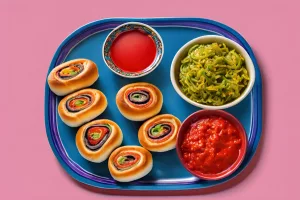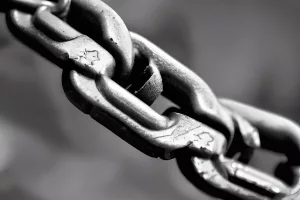A rich Chinese streamer named Zhanfei came to a fancy hotel in Cape Town, South Africa. But instead of a fun trip, two clever guys, Thabo M. and Lefa K., kidnapped him right from his room! They used his own internet fame against him, making him borrow lots of money and even faking a scandal with a condom. It wasn’t about stealing things, but about making chaos online to get money. This wild story shows how crime is changing, using social media and lies to make trouble and cash.
The Kerriewors controversy started when a TikTok video showed Jan Braai seemingly ignoring a man in a blue tracksuit while giving out kerriewors rolls at Willowbridge Shopping Centre. What was meant to be a fun event turned serious as people accused Jan of racial bias, sparking intense reactions online. Food Lover’s Market tried to clear things up by releasing new footage showing Jan sharing kerriewors with everyone, including the man in the tracksuit. This incident highlights the power of social media to stir emotions and shine a light on ongoing racial issues in South Africa, reminding us how easily misunderstandings can arise in the quest for unity.
The ocean around Blouberg Beach in South Africa has undergone a strange transformation in color, triggering a range of theories and discussions. Some blame pollution, while others suggest natural phenomena, such as sediment mixing or freshwater interacting with saltwater. Despite the ongoing mystery, the situation highlights the need to understand the interplay between human actions and nature’s reactions to preserve our ecosystems. The power of shared curiosity and the role of social media in generating crucial dialogues have also been emphasized.
Karin Kortje, winner of Idols SA, uses TikTok to share her personal story of tragedy, recovery, and resilience. Her account serves as a therapeutic outlet for her to recount the night when Renate Kellerman was brutally murdered, revealing spooky moments that cast doubt over her thenboyfriend. Through her storytelling, Kortje showcases the transformative power of using one’s voice to recount personal trauma and the effect of shared experiences in fostering healing.
BackaBuddy, a South African crowdfunding platform, has been caught up in controversy as a fundraising campaign for a suspended MP violated the platform’s terms of use. This incident has led to debates about the accountability and neutrality of crowdfunding platforms like BackaBuddy, especially in politically tense situations. The incident also illustrates the ongoing racial tensions in South Africa and the importance of responsible usage of social media platforms in bringing such issues to the forefront.
South Africa’s National Council of Provinces has made significant strides in promoting transparency and accountability in the country’s political system. Two reports were approved, focusing on ethical codes and disclosures of member interests, with harsher penalties suggested for violators. The revised code also aims to tackle ethical issues in social media and proposes riskprofile lifestyle audits. These measures aim to create a more trustworthy and accountable governance system, serving as a model for ethical conduct and representing a key advancement in the political evolution of the nation.
Miss Albany became famous after her uncle, a professional photographer, took captivating pictures of her holding an Albany bread loaf, which went viral on social media. However, her uncle later criticized the commercial use of her fame, clarifying that they received no compensation. The saga of Miss Albany serves as a depiction of the power of social media, the complexities of corporate ethics, and the potential of photography for social commentary and change.
Unrest erupted in Vredenburg as the community demanded justice for a missing sixyearold boy. The crowd outside the courthouse grew increasingly agitated, resulting in chaos and injuries as the police responded with rubber bullets and stun grenades. The incident will be investigated, with video evidence playing a crucial role while the disruption caused a delay in court proceedings, highlighting the impact of the community’s battle for justice.








